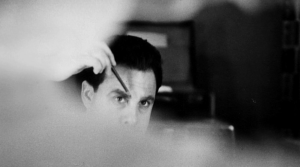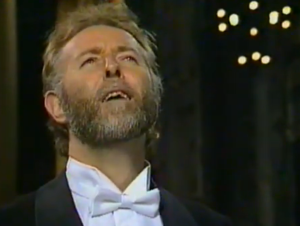Podcast: Play in new window | Download (Duration: 1:22:56 — 85.0MB) | Embed
Subscribe: Spotify | TuneIn | RSS | More
Even before the continuing acts of gun violence in the US this week, I had chosen a theme that necessitated a rather sombre setlist: the artistry of Canadian-born singer George London in recital. Though London was one of the premier operatic bass-baritones in the 1950s, he also reserved a significant corner of his artistic endeavors for the recital stage. This episode focuses on London’s live and studio recordings of this repertoire, which, in part simply by virtue of the dark color of his voluminous voice, tended toward the serious: Schubert’s Heine settings, Brahms’s Vier ernste Gesänge, Ibert’s Don Quichotte songs, Duparc’s sepia-toned melodies, Mahler’s Kindertotenlieder, and his calling-card, Mussorgsky’s Songs and Dances of Death. Examples of London singing all of this repertoire are included, accompanied by Paul Ulanowsky, Leo Taubman, Erik Werba, and John Newmark, among others. The episode is dedicated to the memory of all innocent victims in the epidemic of gun violence in the United States.
Countermelody is a podcast devoted to the glory and the power of the human voice raised in song. Singer and vocal aficionado Daniel Gundlach explores great singers of the past and present focusing in particular on those who are less well-remembered today than they should be. Daniel’s lifetime in music as a professional countertenor, pianist, vocal coach, voice teacher, and author yields an exciting array of anecdotes, impressions, and “inside stories.” At Countermelody’s core is the celebration of great singers of all stripes, their instruments, and the connection they make to the words they sing. By clicking on the following link (https://linktr.ee/CountermelodyPodcast) you can find the dedicated Countermelody website which contains additional content including artist photos and episode setlists. The link will also take you to Countermelody’s Patreon page, where you can pledge your monthly or yearly support at whatever level you can afford.



